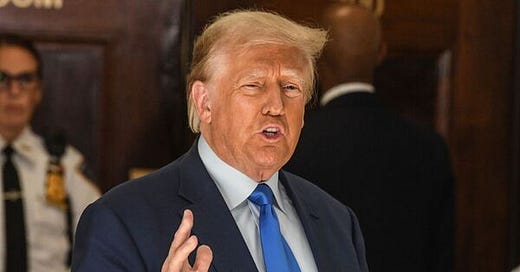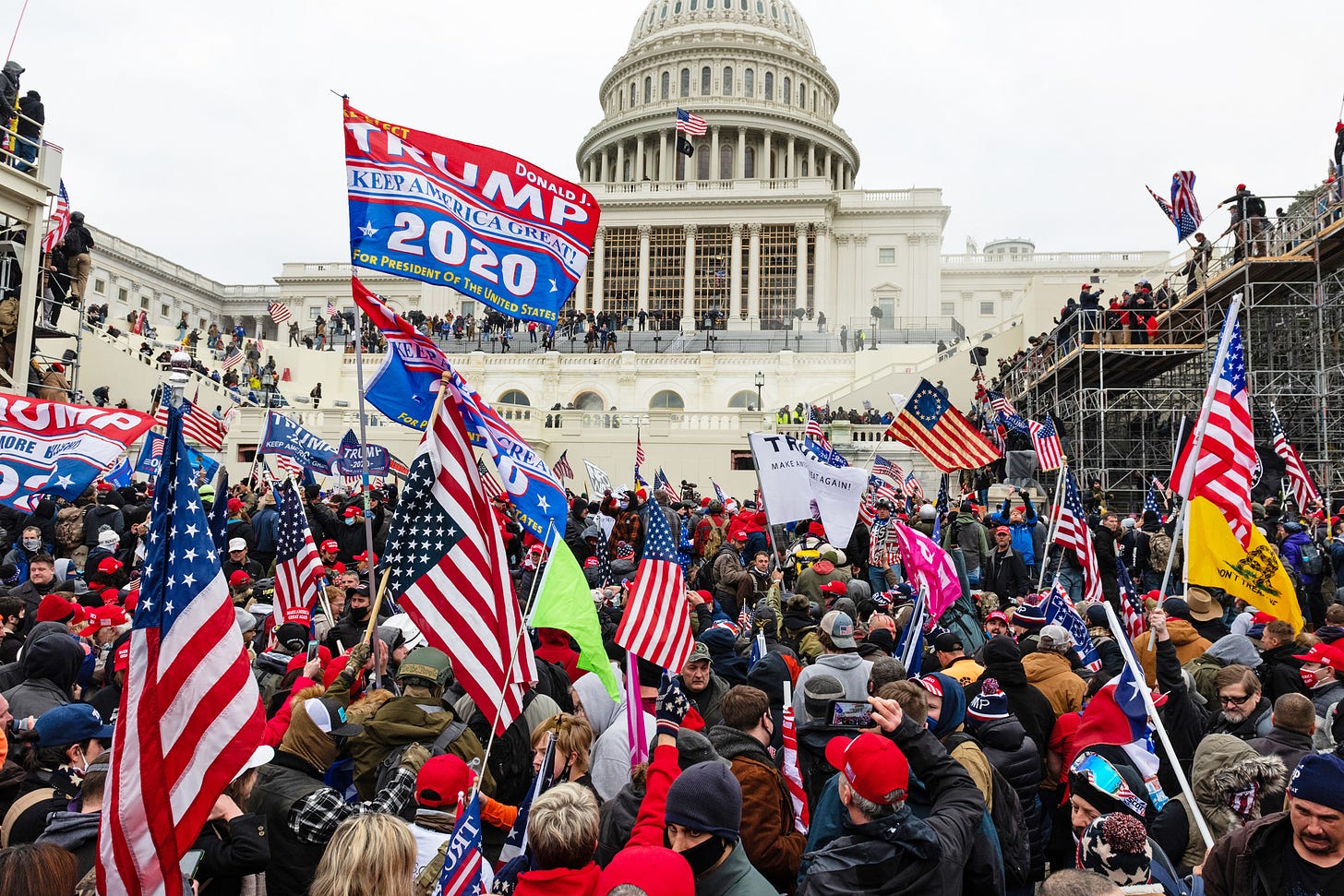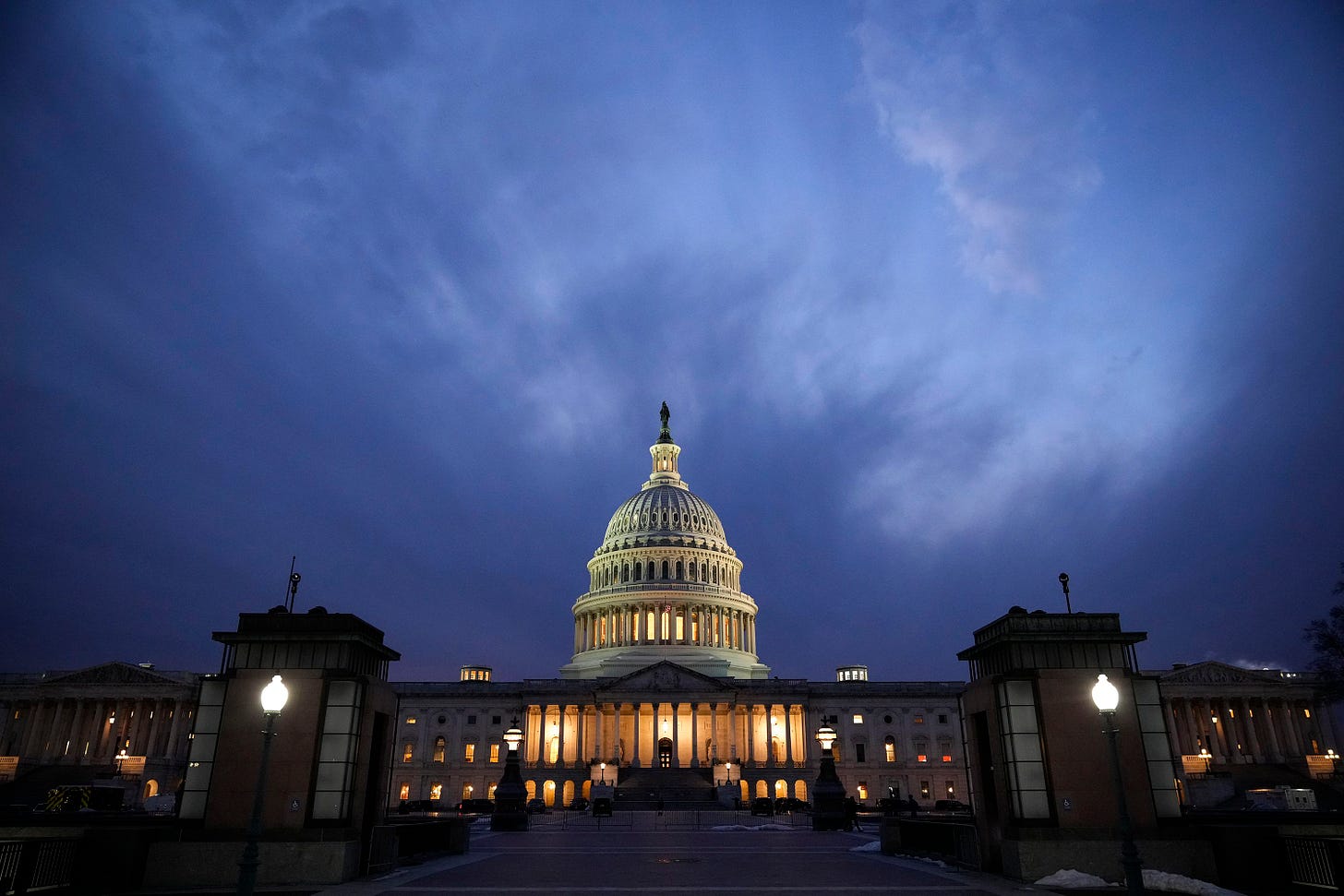Trump's Defense Teams' Tool-kit— Free Speech, Double Jeopardy and Presidential Immunity
Trump's Latest Legal Challenge to Federal Election Obstruction Case connected with the 6th January, 2020 rioting at the Capitol Hill, D.C.

Introduction
Former U.S. President Donald Trump has filed a motion to dismiss federal charges of obstructing the 2020 election, invoking First Amendment protections for his political speech and challenging the constitutional validity of his indictment. The plea was submitted in the Federal Court in Washington, D.C., barely minutes before the midnight deadline between 23rd and 24th October, 2023, ET. His legal team contends that the charges suffer from fatal flaws, amounting to political persecution by the Biden administration. The trial is set to take place in March 2024, coinciding with the peak of the campaign season for the 2024 Presidential Election.
The First Amendment Defense and Irrelevance of Capitol Attack
Trump's legal team argues that his post-2020 election actions and statements are protected by the First Amendment as core political speech. They assert that this should immunize him from criminal charges based on these activities. Furthermore, the defense contends that any allegations linking Trump to the violence of the January 6, 2021, attack on the U.S. Capitol are irrelevant and prejudicial, as he has not been charged with inciting that riot. His defense attorneys stated, "Because the Government has not charged President Trump with responsibility for the actions at the Capitol on January 6, 2021, such allegations are not relevant and are both prejudicial and inflammatory. Therefore, the Court should strike these allegations from the indictment." They added, "The indictment must be dismissed because it seeks to criminalize core political speech and advocacy that lies at the heart of the First Amendment." The team also clarified that on this particular legal ground they are not invoking any privilege associated with Trump's status as a former President but are instead relying on the fundamental rights available to every U.S. citizen.
Double Jeopardy and Constitutional Protection
Donald Trump's legal team posits that he cannot be criminally prosecuted for alleged obstruction of the 2020 election results due to his prior impeachment by the House and subsequent acquittal by the Senate. They assert that the Constitution protects a President from facing criminal charges if already impeached and acquitted. Citing the Constitution, which states that a President removed from office may subsequently be charged by "Indictment, Trial, Judgment and Punishment," Trump's attorneys argue that this "presupposes that a President who has been previously acquitted may not be subject to criminal prosecution." They contend that constitutional text, separation of powers, historical tradition, and principles of Double Jeopardy prohibit the Executive Branch from charging a President who has been acquitted in a Senate trial, again on substantially the same grounds
Contrary Interpretation by Prosecutors
Prosecutors, however, point out that Trump took the opposite stance during his impeachment trial, arguing that he could face criminal charges later if the Senate acquitted him. They maintain that the constitutional clause in question is designed to limit Congress's power to remove and disqualify presidents from office, not to prevent the prosecution of those who evade removal. Prosecutors also counter Trump's claims by arguing that immunity from criminal prosecution would effectively place any President "above the law", which is not permissible as per the Constitution of the USA.
Questions of Legal Intent and Sufficiency
Trump's defense team also contests the legal sufficiency of the charges, asserting that the indictment unfairly links him to the Capitol riot of January 6, 2021, despite not being charged for inciting it—making it irrelevant and prejudicial. Furthermore, they argue that even if the allegations in the indictment are accepted as true, the Government has not adequately demonstrated how Trump violated the laws he's accused of breaching. Specifically, they note that prosecutors fail to prove the former President's intent was deceitful, a requisite element for charging him with conspiracy to defraud the United States. The defense posits that Trump was not in a unique position to deceive anyone about election fraud, given the extensive public discourse on the topic. They claim it is absurd to believe that Trump could unilaterally trick or deceive well-informed politicians simply by advocating his opinions, thus urging for the indictment to be dismissed on statutory grounds.

Meanwhile, in Atlanta, Georgia
In a significant development, Jenna Ellis, a former legal adviser to Donald Trump's 2020 campaign, on Tuesday, October 24, 2023 pleaded guilty to aiding and abetting false statements concerning the 2020 election in Georgia. This marks the first time a senior aide to Trump has been held criminally accountable for disseminating false claims about widespread election fraud. Ellis' plea deal enables her to avoid jail time, provided she supplies evidence implicating other defendants and agrees to testify in future trials. She joins a growing list of individuals directly connected to Trump who have pleaded guilty, raising questions about the impact on co-defendants. The plea deal obligates Ellis to undergo three to five years of probation, perform 100 hours of community service, and pay $5,000 in restitution to the Georgia secretary of state, along with issuing a formal apology to the state. The guilty plea amplifies the scrutiny on Trump's various legal battles, adding another layer of complexity to the unfolding story.
Other Ongoing Cases
Trump faces multiple other felony prosecutions, including a state trial in Georgia for similar charges, a federal indictment in Florida over the mishandling of classified documents, and a business fraud case in New York, pertaining to the former adult-film actress Stormy Daniels. These additional legal challenges add layers of complexity to his current federal case.
Prosecution's Counterarguments
Prosecutors counter Trump's claims by arguing that immunity from criminal prosecution would effectively place any President "above the law." They also contest the interpretation that an acquitted president cannot face subsequent criminal charges.
Looking Forward
The case is expected to go to trial in March, with numerous procedural steps yet to be taken. Trump's lawyers have concluded their pretrial motions to dismiss or limit the case, and prosecutors will have the opportunity to respond in the coming weeks.
Summing Up
The legal struggle poses unprecedented questions about the limits of residential accountability. Trump's bid to dismiss the case heightens the conflict between free speech and criminal liability, setting the stage for an intensely watched trial.
This case is not only a legal flashpoint but also a volatile issue in the wider arena of American politics. Though Trump's arguments mirror those often used by criminal defendants to challenge the adequacy of charges, the unique circumstances — such as invoking the First Amendment, raising double jeopardy concerns following Senate acquittal after House impeachment, and claiming immunity for actions taken as a sitting President — ensure this will be a closely scrutinised case, potentially escalating to the Supreme Court of the United States.






